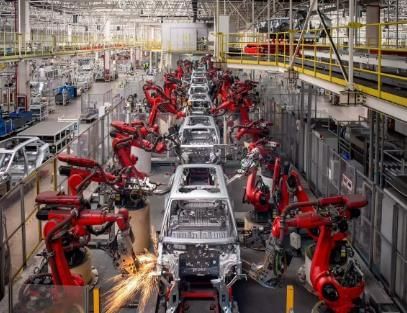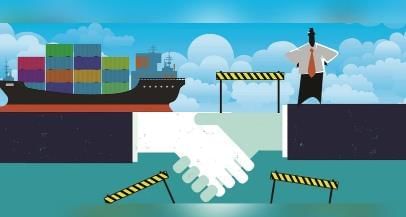Explore the Economy | Geography for Year 6 PDF Download
| Table of contents |

|
| What is the economy? |

|
| Supply and Demand |

|
| What does the economy include? |

|
| Trade Deals |

|
| Sustainable Development |

|
What is the economy?
The term "economy" refers to how well a country or region performs in producing goods and generating wealth. Economic activity is measured by the volume of goods and services a country produces and sells.
Goods and Economic Activity
Countries produce and sell a variety of goods, including:
- Cars
- Fridges
- Computers
- Clothing
- Bananas
- Fish
When a country produces high-demand goods, it can increase its wealth by selling them. This leads to businesses hiring more workers, and people having more money to spend, resulting in a boom or upturn in the economy.
Conversely, if demand for goods decreases, prices drop, leading to reduced wealth. Businesses may hire fewer workers, and people have less money to spend, causing a slump or downturn.
Supply and Demand
For goods to be sold, there must be buyers interested in purchasing them. High demand for a product allows sellers to charge higher prices. However, if many sellers offer the same goods but few buyers are interested, demand falls, and prices decrease. This dynamic is known as supply and demand.
What does the economy include?
The economy encompasses various industries:
- Manufacturing Industries: Producing goods for sale, such as clothing, toys, or equipment.

- Agricultural Industries: Growing or cultivating products, like crops, livestock, or timber.
- Service Industries: Providing skills or services, such as banking, insurance, or hospitality.
Economic Growth and Poverty
- Economic growth occurs when the average income of a population increases over time.
- Extreme poverty is defined as living on less than 1.90 international dollars per day (approximately £1.50). Over the last 30 years, global economic growth has reduced the number of people in extreme poverty. According to the World Bank, about 700 million people worldwide still live in extreme poverty.
Trade Deals
A trade deal is an agreement between countries that outlines rules for buying and selling goods and services. Countries pursue trade deals to boost their economies by creating markets for their exports and simplifying trade.
The UK was part of a special trade agreement with the European Union. In June 2016, the UK voted to leave the EU, a decision known as Brexit. Since then, the UK has been seeking new trade deals with other countries to support its economy.

Sustainable Development
Sustainable development involves balancing economic growth with the needs of people and the environment. It considers:
- People: How economic activities impact health and job satisfaction.
- Environment: The environmental effects of economic activities and whether resources are replenished or replaced.
- Economy: The profitability of economic activities and the stability of jobs in the industry.














